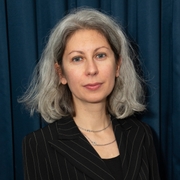- Level Foundation
- المدة 17 ساعات hours
- الطبع بواسطة University of Geneva
-
Offered by

عن
Evidence is central to good decision-making both in the humanitarian sector and beyond. Every day, a vast amount of evidence is generated that is relevant to humanitarian actors, much of it through research by academics and practitioners. This evidence can be incredibly valuable. It can help us better understand a situation and make humanitarian action more effective and accountable. The difficulty comes with understanding what evidence is relevant to our circumstances, where to find it, and how to assess its quality. This course will provide you with the fundamental knowledge and skills to answer these questions and help you better engage with research. It has been developed with you - a humanitarian professional or junior researcher - in mind. The course moves through the core research concepts one-at-a-time and does not require any prior knowledge or experience. We encourage all of you to plan your own learning journey by using this MOOC in a way that is most useful to you. Content highlights: - How can research be used for humanitarian practice? - What are the most appropriate research methods? - How can I judge the quality of the evidence and whether it is applicable to the context I work in? - How can populations in a situation of vulnerability be protected during a study? This course - co-developed in a partnership between academic and humanitarian institutions - is strongly positioned to give you the needed skills and knowledge to build a bridge between research and practice. We hope that this course will change your perspectives and improve your knowledge and, ultimately, make humanitarian responses more evidence-based. Enjoy!
الوحدات
Welcome
2
Videos
- MOOC trailer
- Welcome to this MOOC
2
Readings
- Course information
- 📢 Important preliminary information: Evaluations and subtitles
Why do we need research ?
1
Assignment
- Needs and rights
1
Discussions
- Personal experience
3
Videos
- Conducting Research - Part 1 (Trailer)
- Presentation of the module
- Conducting Research - Part 2
2
Readings
- Needs and rights
- When do we need research
What counts as evidence?
2
Assignment
- Evidence-based decisions
- Evidence
2
Videos
- Decisions, decisions, decisions
- Bias and evidence
2
Readings
- Decision making
- Defining evidence
Valuable for whom?
1
Assignment
- Valuable for whom?
1
External Tool
- Valuable when?
2
Videos
- The value of research: Perspectives
- Showcase: How you use research
1
Readings
- Views on humanitarian research: foreword
Summary and evaluation
1
Assignment
- Module #1 evaluation
1
Videos
- Weekly summary
2
Readings
- 📢 Important preliminary information: Evaluations and subtitles
- Optional Readings
The research process
1
Assignment
- From needs to research
1
External Tool
- The research process
3
Videos
- Presentation of the module
- The research process
- From needs to research: Experience of a humanitarian researcher
Research questions: Formulation and flaws
2
Assignment
- Research questions (Part 2)
- Research questions and typical flaws
1
Discussions
- Research questions (Part 1: your ideas)
1
Videos
- Formulating a research question
2
Readings
- Research questions (Part 1)
- Research questions and typical flaws
Choosing a study design
1
Assignment
- Matching research questions and study designs
1
External Tool
- Research methods
3
Videos
- Study designs: Part 1
- Study designs: Part 2
- Application of research methods
1
Readings
- Summary: The study designs
Recognising high-quality evidence
1
External Tool
- Mix & match: Quality and biases
2
Videos
- How to recognise high-quality evidence
- Spotting and recognizing biases
1
Readings
- Biases and quality
Summary and evaluation
1
Assignment
- Module #2 evaluation
1
Videos
- Weekly summary
1
Readings
- Optional Readings
Challenges and opportunities of conducting research in humanitarian settings
1
Assignment
- Implementing research
3
Videos
- Presentation of the module
- The reality of implementing research
- Challenges and opportunities - the big picture
2
Readings
- What is different in humanitarian settings?
- Summarizing the differences
Robustness vs. feasibility
2
Assignment
- Feasibility of research methods
- Which method?
3
Videos
- Robustness vs. feasibility
- Which method?
- Existing evidence
2
Readings
- Research methods for humanitarians
- Where to look for evidence
Mixed-methods
2
Assignment
- Quantitative and qualitative methods
- Mixed-methods
3
Videos
- Case study #3
- Mixed-methods: Robustness vs. feasibility
- Visual research methods
2
Readings
- Case studies #1 and #2
- How to mix methods
Research tools and adaptations
3
Assignment
- Adapting tools and methods
- Useful data collection tools
- Research mindset
2
Videos
- Adapting tools and methods
- The research mindset
2
Readings
- Dynamic research
- Useful data collection tools
Summary and evaluation
1
Assignment
- Module #3 evaluation
1
Videos
- Weekly summary
1
Readings
- Optional Readings
Introduction
1
Assignment
- Field ethics during Ebola
1
External Tool
- Ethical principles of research
2
Videos
- Presentation of the module
- Overview of ethical principles of research
1
Readings
- Field ethics during Ebola
Ethical risks: from identification to mitigation
1
Assignment
- Ethical risks and informed consent
1
Discussions
- Personal experiences with ethical dilemmas
2
Videos
- The main ethical risks
- Informed consent
1
Readings
- Case study: Dakar workshop
The ethics review process: What is it?
2
Assignment
- Ethics review process
- Conducting an ethics review
1
Videos
- Introducing ethics review
2
Readings
- Ethics review process: An example
- Conducting an ethics review
Community engagement
1
Assignment
- The value of community engagement
1
External Tool
- Community stakeholders and engagement
1
Discussions
- The Bukavu expo: Experiences
2
Videos
- Why should we engage communities?
- How to engage communities
2
Readings
- (Silent) voices: The Bukavu expo
- Participatory methods for community engagement
Summary and evaluation
1
Assignment
- Module #4 evaluation
1
Videos
- Weekly summary
1
Readings
- Optional Readings
Introduction: Translating evidence
1
Assignment
- Challenges of translating evidence into practice
3
Videos
- Presentation of the module
- Testimony of a practitioner
- Challenges of translating evidence into practice
2
Readings
- Summary of key challenges
- Case study: The Humanitarian Encyclopedia
Accountability to donors, communities, and partners
2
Assignment
- Accountability
- Accountable to whom?
3
Videos
- What is accountability?
- To whom are humanitarian organisations accountable?
- Accountability to the donor
1
Readings
- Accountability to affected people
In theory
1
Assignment
- Key frameworks
1
External Tool
- Mix & match: Power dynamics
2
Videos
- Evidence use and knowledge transfer
- Power dynamics
1
Readings
- Applying frameworks
In practice
2
Assignment
- Good practice examples
- Communicate research findings
1
External Tool
- Good-practice: Translating research findings
2
Videos
- How to translate research findings into policy and practice? Examples of good practices
- Good practice: How to communicate research findings
2
Readings
- Case study: Translating research findings
- Research outputs
Summary and evaluation
1
Assignment
- Module #5 evaluation
1
Videos
- MOOC summary
1
Readings
- Optional Readings
Auto Summary
"Operational Research for Humanitarians" is a foundational course designed for humanitarian professionals and junior researchers, offered by Coursera. Focusing on the intersection of research and humanitarian practice, it covers core concepts such as appropriate research methods, assessing evidence quality, and protecting vulnerable populations during studies. Developed collaboratively by academic and humanitarian institutions, this 1020-minute course equips learners with essential skills to enhance evidence-based decision-making in humanitarian contexts. Subscription options include a professional plan, making it accessible for those seeking to bridge the gap between research and practical application.

Karl Blanchet

Francesca Grandi

Emilie Venables

Sameen Siddiqi

Maleeha Naseem

Jai Das

Benjamin Schmid


